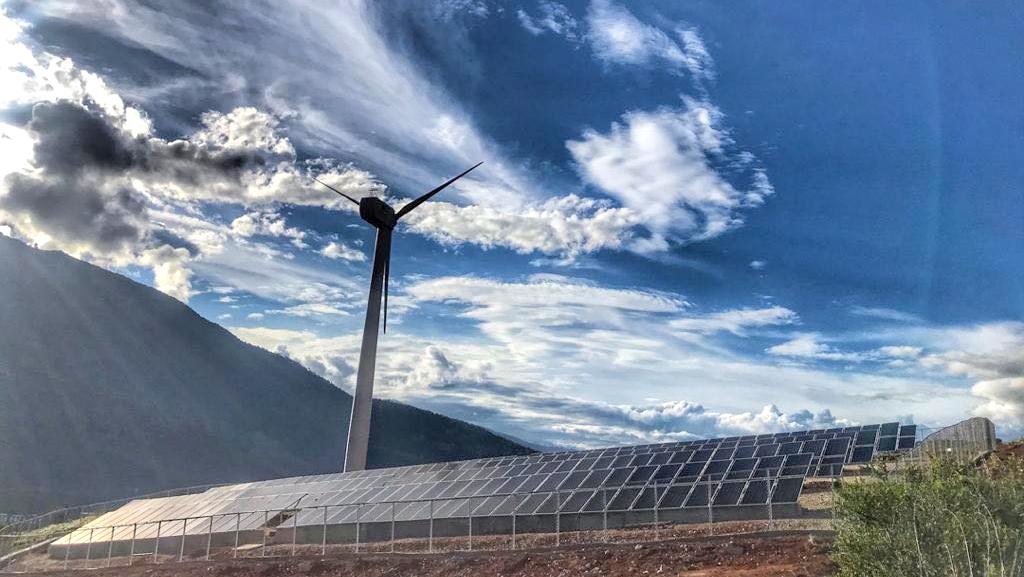Electricity and electronic devices in Bhutan represent a dynamic and rapidly evolving sector, reflective of the country's unique blend of traditional values and modern technological aspirations. Bhutan, a nation known for its commitment to gross national happiness and environmental conservation, has made remarkable strides in the field of electricity generation, particularly through hydropower. This has not only enabled near-universal electricity access across the country but also fueled the growth of the electronic devices market. The widespread availability of electricity has been a cornerstone in advancing internet and connectivity, which in turn is reshaping Bhutan's social and economic landscape. The focus on tech education and jobs is preparing the youth for the future, while the government's energy policy emphasizes sustainability, aligning with Bhutan's ecological ethos. Additionally, the burgeoning need for technical support in line with increasing tech adoption highlights a new, tech-savvy direction for Bhutan. As a country that carefully balances modernization with its cultural and environmental heritage, Bhutan presents a unique case study in the harmonious integration of technology and tradition.
We pride ourselves on being the foremost authority and the best company when it comes to tours that explore the fascinating world of Electricity and Electronic Devices in Bhutan. Our specialized tours are designed to offer an insightful and comprehensive look into Bhutan's remarkable achievements in the realms of hydropower, electricity access, and the burgeoning electronic devices market. With our expert guides and meticulously crafted itineraries, we ensure that our guests receive a unique and in-depth perspective on how this Himalayan kingdom has harmoniously blended traditional values with modern technological advancements. Our commitment to excellence, combined with our deep understanding of Bhutan's energy sector and technological landscape, makes Luxury Holidays Nepal the ideal choice for anyone looking to explore these dynamic and evolving aspects of Bhutan. Join us for an unparalleled journey into the heart of Bhutan's technological revolution, where sustainability meets innovation.
Hydropower Dominance
In Bhutan, the dominance of hydropower in the electricity sector is a defining feature of the country's approach to energy. This small Himalayan kingdom, known for its commitment to environmental conservation and sustainability, has effectively harnessed its abundant water resources to become a leader in hydropower generation.

-
Abundant Water Resources: Bhutan's geographical location, characterized by its mountainous terrain and numerous rivers, provides an ideal setting for hydropower generation. The country's rivers, fed by Himalayan glaciers and monsoon rains, offer a consistent and powerful source for generating electricity.
-
Major Contributor to Economy: Hydropower is not just a source of energy but also a significant economic driver for Bhutan. It is one of the country's largest exports, particularly to neighboring India, where there is a high demand for clean and renewable energy.
-
Sustainable Energy Source: Bhutan's focus on hydropower aligns with its broader environmental goals and commitment to sustainability. Hydropower, as a renewable energy source, reduces reliance on fossil fuels and helps in minimizing carbon emissions, aligning with Bhutan's vision of maintaining a carbon-neutral status.
-
National Power Supply: Hydropower stations across Bhutan provide the bulk of the national electricity supply, ensuring that the country's energy needs are met predominantly through renewable sources. This has enabled widespread electricity access, even in remote areas.
-
Regional Collaboration: Bhutan's hydropower sector has been bolstered by its collaboration with neighboring countries, especially India. This collaboration involves joint hydropower projects and agreements for energy trade, which benefit both countries economically and environmentally.
-
Investment in Infrastructure: The Bhutanese government, along with international partners, has invested heavily in hydropower infrastructure. This includes the construction of dams, power stations, and transmission lines, ensuring efficient energy production and distribution.
-
Challenges and Opportunities: While hydropower is a boon for Bhutan, it also presents challenges, particularly related to environmental impact and the need for sustainable practices in dam construction and operation. Nonetheless, the opportunities it presents for clean energy, economic growth, and regional cooperation are immense.
Hydropower's dominance in Bhutan is a clear reflection of the country's dedication to harnessing natural resources responsibly and sustainably. It underscores Bhutan's role as an example of how renewable energy can be effectively utilized to meet both environmental and economic goals.
Growth of the Electronic Devices Market
The growth of the electronic devices market in Bhutan is a significant development, mirroring the country's strides in increasing electricity access and technological advancement. This growth is indicative of Bhutan's evolving lifestyle and consumer behavior, driven by enhanced connectivity and economic progress.
-
Increased Electricity Access: With almost universal electricity coverage across the country, including remote areas, there's been a surge in the demand for electronic devices. A reliable electricity supply makes the use of various electronic gadgets feasible and attractive.
-
Rising Income Levels: As Bhutan's economy grows, so does the disposable income of its citizens. This economic upliftment has led to increased purchasing power, allowing more people to invest in electronic devices for personal and professional use.
-
Improved Internet Connectivity: The expansion of internet services and connectivity in Bhutan has been a catalyst for the growth of the electronic devices market. With better internet access, the demand for smartphones, laptops, and other internet-enabled devices has skyrocketed.
-
Young and Tech-Savvy Population: Bhutan's demographic profile, with a significant portion of young people, contributes to the growing market for modern electronic devices. The youth, being more tech-savvy, are keen on adopting the latest technologies.
-
Government Initiatives: Bhutan's government has been proactive in encouraging technological advancement and digitalization. Initiatives to modernize the nation and promote digital literacy have positively impacted the electronic devices market.
-
Educational and Professional Needs: With the integration of technology in education and various professional sectors, there's a growing need for electronic devices like computers, tablets, and projectors in educational institutions and workplaces.
-
Global Trends and Accessibility: As Bhutan opens up to global markets, the availability and variety of electronic devices have increased. The influence of global technological trends also plays a role in shaping consumer preferences.
-
Challenges and Opportunities: While the market is growing, challenges like the need for technical support, maintenance, and the handling of e-waste are emerging. These challenges also present opportunities for developing related services and recycling industries.
The growth of the electronic devices market in Bhutan is a reflection of the country's rapid modernization and increasing integration with the global economy. This growth not only enhances the quality of life of the Bhutanese people but also opens up new avenues for economic and technological development.
Internet and Connectivity Expansion

-
Rapid Growth of Internet Usage: Bhutan has seen a rapid increase in Internet usage over recent years. This is driven by the government's initiatives to expand digital infrastructure, coupled with the growing availability of affordable internet services and smartphones.
-
National Broadband Policy Implementation: The Bhutanese government has implemented a national broadband policy aiming to provide high-speed internet access across the country. This policy focuses on enhancing connectivity, particularly in rural and remote areas, to ensure equitable access to digital resources.
-
Mobile Connectivity: Mobile connectivity has played a crucial role in the internet expansion in Bhutan. With a high mobile phone penetration rate, many Bhutanese access the internet primarily through their smartphones, facilitating on-the-go connectivity and access to various online services.
-
Impact on Social and Economic Activities: Improved internet and connectivity have transformed social and economic activities in Bhutan. It has enabled e-commerce, online education, telemedicine, and remote working possibilities, significantly impacting the way people live and work.
-
Digital Literacy and Education: The government's focus on digital literacy is evident in its efforts to integrate technology into the education system. Schools and educational institutions are increasingly using digital tools, preparing students for a digitally-driven world.
-
Support for Innovation and Entrepreneurship: Enhanced internet connectivity has spurred innovation and entrepreneurship, especially among the youth. Start-ups and tech-based businesses are increasingly contributing to Bhutan's economy, leveraging the power of the Internet.
-
Challenges in Connectivity: Despite these advancements, Bhutan faces challenges in ensuring consistent and high-quality internet services across all regions. The mountainous terrain presents physical barriers to infrastructure development, and there is ongoing work to overcome these challenges.
-
Future Prospects: Looking ahead, Bhutan aims to continue expanding its internet and connectivity infrastructure, focusing on sustainable technologies and inclusive access. This will play a crucial role in the country's ongoing digital transformation and socio-economic development.
The expansion of the internet and connectivity in Bhutan represents a significant stride in the nation's journey towards becoming a more connected and digitally empowered society. This progress not only enhances the quality of life of its citizens but also opens up new opportunities for economic growth and global integration.
Widespread Electricity Access
The widespread electricity access in Bhutan is a remarkable achievement, marking a significant milestone in the country's development journey. This achievement is especially notable given Bhutan's challenging topography and the remote nature of many of its communities.
-
Nationwide Coverage: Bhutan has achieved near-universal electricity coverage, reaching even the most remote villages. This feat is impressive, considering the country's mountainous landscape, which poses significant logistical challenges in terms of infrastructure development.
-
Hydropower Utilization: The backbone of this widespread electricity access is Bhutan’s abundant hydropower resources. By harnessing its rivers for hydropower generation, Bhutan has been able to provide a stable and reliable source of electricity across the nation.
-
Rural Electrification: A key focus of Bhutan’s electrification efforts has been on rural areas. The government's commitment to rural electrification has been instrumental in ensuring that electricity access is not just limited to urban centers but extends to all corners of the kingdom.
-
Impact on Quality of Life: The availability of electricity has profoundly impacted the quality of life in Bhutan. It has facilitated better educational opportunities, healthcare services, and overall economic development. Access to electricity has also led to a reduction in the use of traditional biomass for cooking and heating, improving health outcomes.
-
Boost to Economic Activities: Electricity access has enabled and enhanced various economic activities, from small-scale cottage industries to larger businesses. It has also been pivotal in attracting foreign investment and promoting tourism, contributing significantly to Bhutan's economy.
-
Digital Connectivity: With electricity comes the possibility of digital connectivity. Increased access to electricity has paved the way for improved internet and telecommunications services, connecting Bhutanese people to each other and the world.
-
Sustainable Development: Bhutan’s approach to electricity access aligns with its overarching commitment to sustainable development. The focus on hydropower, a renewable energy source, reflects the country's dedication to environmental conservation.
-
Challenges and Future Outlook: Despite these achievements, Bhutan faces challenges in maintaining its electricity infrastructure and managing the environmental impacts of hydropower projects. Looking ahead, Bhutan aims to continue expanding electricity access while balancing environmental considerations.
Widespread electricity access in Bhutan stands as a testament to the country’s commitment to sustainable development and improving the lives of its citizens. This achievement not only enhances the daily lives of Bhutanese people but also sets a benchmark for other nations in terms of rural electrification and sustainable energy practices.
Innovation and Modernization
The sphere of Electricity and Electronic Devices in Bhutan is increasingly characterized by innovation and modernization, reflecting the nation's commitment to embracing technology while maintaining its cultural and environmental ethos. Bhutan's approach showcases a unique blend of traditional values and modern technological advances.

-
Leveraging Hydropower for Innovation: Bhutan’s primary innovation in electricity has been the extensive development of hydropower. This not only provides a renewable source of energy but also positions the country as a leader in sustainable power generation.
-
Modernizing Electricity Infrastructure: Bhutan is continuously upgrading its electricity infrastructure to ensure reliability and efficiency. This includes the adoption of modern grid technologies and the exploration of smart grid solutions to optimize energy distribution and consumption.
-
Growth in Electronic Devices Usage: The widespread availability of electricity has led to an increase in the usage of electronic devices. Bhutan is witnessing a technological transformation in both urban and rural areas, with more people using smartphones, computers, and other digital technologies.
-
Digital Connectivity Initiatives: The country has made significant strides in enhancing internet connectivity. The deployment of broadband and mobile networks is a testament to Bhutan’s commitment to becoming a digitally connected and informed society.
-
Focus on Tech Education: Recognizing the importance of technology in modern-day life, Bhutan has placed a strong emphasis on tech education. Schools and educational institutions are increasingly incorporating IT and digital literacy into their curricula.
-
E-Governance and Digital Services: The Bhutanese government is actively promoting e-governance and digital services. This move towards digitization of government services is aimed at enhancing efficiency, transparency, and accessibility for citizens.
-
Encouraging Technological Entrepreneurship: Bhutan is fostering an environment conducive to technological entrepreneurship. This includes supporting startups and businesses that are innovating in the field of technology and electronic devices.
-
Balancing Modernization with Tradition: Despite its push towards modernization, Bhutan remains deeply rooted in its cultural and environmental values. The country's approach to technology adoption is carefully balanced with its commitment to preserving its heritage and natural landscape.
-
Challenges and Adaptive Strategies: Bhutan faces unique challenges in its journey towards modernization, including geographic constraints and resource limitations. The country is adopting adaptive strategies, such as leveraging international partnerships and focusing on sustainable technologies.
Innovation and modernization in the realm of electricity and electronic devices in Bhutan are unfolding in a manner that is both progressive and mindful of the country’s unique cultural and environmental context. This approach not only enhances the quality of life for its citizens but also sets an example of how technology can be embraced responsibly and sustainably.
Sustainable Energy Policy
Bhutan's approach to energy, particularly in the realm of electricity and electronic devices, is deeply rooted in its commitment to sustainability. The country's sustainable energy policy is a key component of its national strategy, reflecting its ethos of environmental conservation and responsible development.
-
Hydropower as a Cornerstone: Central to Bhutan’s energy policy is the development of hydropower. Unlike fossil fuels, hydropower is a renewable and clean energy source that significantly reduces carbon emissions. Bhutan leverages its natural river systems to generate electricity, ensuring a sustainable energy supply.
-
Carbon-Neutral Commitment: Bhutan is one of the few countries in the world with a carbon-neutral, or even carbon-negative, status. This remarkable achievement is partly due to its sustainable energy policy, which prioritizes renewable sources over fossil fuels.
-
Environmental Conservation: Bhutan’s energy policy is closely aligned with its commitment to environmental conservation. The country ensures that its hydropower projects and other energy initiatives are developed with a minimal environmental footprint, preserving its rich biodiversity.
-
Rural Electrification: Part of the sustainable energy policy includes extending electricity access to rural and remote areas. This initiative not only improves the quality of life for rural communities but also supports sustainable development by reducing dependence on biomass and other non-renewable energy sources.
-
Promotion of Energy Efficiency: The policy also emphasizes energy efficiency, both in terms of power generation and consumption. Bhutan encourages the use of energy-efficient appliances and practices, reducing overall energy demand and promoting sustainable consumption patterns.
-
International Collaboration: Bhutan collaborates with international partners to develop its energy sector. This includes technical and financial assistance for developing sustainable energy infrastructure, ensuring that the country's energy needs are met responsibly.
-
Future Energy Plans: Looking forward, Bhutan plans to expand its energy sector sustainably. This includes exploring other renewable energy sources like solar and wind, and ensuring that the growth in the electronic devices market aligns with its sustainability goals.
-
Challenges and Adaptation: While pursuing these goals, Bhutan faces challenges, such as balancing economic development with environmental protection. The country continually adapts its policies to meet these challenges while staying true to its commitment to sustainability.
Bhutan's sustainable energy policy is a reflection of its dedication to harmonizing economic development with environmental stewardship. This policy not only sets a benchmark in sustainable energy practices but also contributes significantly to the global effort to combat climate change.
Development of Technical Support Infrastructure
The development of technical support infrastructure in Bhutan is a crucial aspect of its expanding electricity and electronic devices sector. As the country embraces more technological advancements and digital solutions, the need for robust technical support systems becomes increasingly important to ensure the smooth operation and maintenance of these technologies.
-
Growing Demand for Technical Services: With the increase in electronic devices and internet connectivity, there is a growing need for technical support services in Bhutan. This includes troubleshooting, maintenance, and repair services for a range of devices like smartphones, computers, and other digital equipment.
-
Capacity Building and Training: Recognizing this need, there has been an emphasis on capacity building and training programs to develop skilled technical professionals in Bhutan. These programs aim to equip locals with the necessary skills to provide technical support, thereby fostering a self-reliant technical workforce.
-
Investment in Service Centers: The government and private sector are investing in establishing service centers and technical support facilities across the country. These centers are essential for providing timely and effective support to users and businesses, ensuring the longevity and optimal performance of electronic devices.
-
Collaboration with Tech Companies: Bhutan has been collaborating with various technology companies and international partners to enhance its technical support infrastructure. These collaborations often involve knowledge transfer, training, and resource sharing, which bolster the country’s technical support capabilities.
-
Focus on Remote and Rural Areas: Given Bhutan’s challenging geography, there is a particular focus on extending technical support services to remote and rural areas. This is crucial to ensure that the benefits of technology are evenly distributed and that users in all regions have access to necessary support.
-
Integration with Education: Technical support and maintenance are also being integrated into the educational curriculum, with institutions offering courses and training programs in IT and technical support. This initiative is preparing a new generation of tech-savvy individuals capable of contributing to this sector.
-
Challenges and Solutions: The development of technical support infrastructure in Bhutan faces challenges such as limited resources, geographical barriers, and the need for continuous upskilling in line with evolving technologies. To address these, the country is exploring innovative solutions like mobile technical services and online support platforms.
-
Future Outlook: As Bhutan continues to advance in the field of technology, the development of a robust technical support infrastructure becomes even more critical. The country is poised to continue enhancing this sector, focusing on sustainability, inclusivity, and innovation.
The development of technical support infrastructure in Bhutan is a key component of its journey towards technological proficiency. This infrastructure not only supports the current needs of the electronic devices market but also lays the groundwork for future technological advancements and innovations.
Bhutan's journey in the realm of electricity and electronic devices is a remarkable example of balancing modernization with sustainability and cultural integrity. The country's successful harnessing of hydropower has laid a strong foundation for widespread electricity access, fueling the growth of its electronic devices market and enhancing digital connectivity. These advancements, coupled with a focus on sustainable energy policies, technical support infrastructure, and innovation, reflect Bhutan's commitment to leveraging technology for national development while preserving its unique environmental and cultural heritage. Bhutan's approach serves as a model for other nations, demonstrating how technological progress can be achieved in harmony with environmental conservation and cultural values.
FAQs: Electricity And Electronic Devices in Bhutan
Q: What is the main source of electricity in Bhutan?
A: The main source of electricity in Bhutan is hydropower, thanks to the country's abundant water resources and mountainous terrain.
Q: How widespread is electricity access in Bhutan?
A: Bhutan has achieved near-universal electricity coverage, extending even to remote and rural areas.
Q: What has been the impact of increased electricity access in Bhutan?
A: Increased electricity access has significantly improved the quality of life in Bhutan, facilitating better education, healthcare, and economic opportunities.
Q: How has the electronic devices market grown in Bhutan?
A: The electronic devices market in Bhutan has grown substantially, driven by wider electricity access, increasing internet connectivity, and rising income levels.
Q: What initiatives has Bhutan taken to expand internet and connectivity?
A: Bhutan has implemented several initiatives, including the national broadband policy, to expand high-speed internet access across the country, particularly in rural areas.
Q: What is Bhutan's approach to sustainable energy?
A: Bhutan's energy policy focuses on sustainability, emphasizing hydropower and other renewable sources, aligning with its commitment to environmental conservation and carbon neutrality.
Q: How is Bhutan developing its technical support infrastructure for electronic devices?
A: Bhutan is investing in service centers, training programs, and collaborations with tech companies to build a robust technical support infrastructure.
Q: What challenges does Bhutan face in its technological advancement?
A: Challenges include geographic barriers, resource limitations, and the need for continuous upskilling to keep pace with evolving technologies.
Q: How is Bhutan balancing technological modernization with its traditional values?
A: Bhutan is carefully integrating technology in a way that respects and preserves its cultural heritage and environmental values, aiming for a harmonious balance between modernization and tradition.
Q: What role does technology play in Bhutan's future development plans?
A: Technology plays a central role in Bhutan's future development, with plans to enhance digital literacy, promote technological entrepreneurship, and continue expanding sustainable energy sources.
If you need any further information, please contact us by email: at [email protected], Phone: at +977- 985 100 5129 (WhatsApp)




